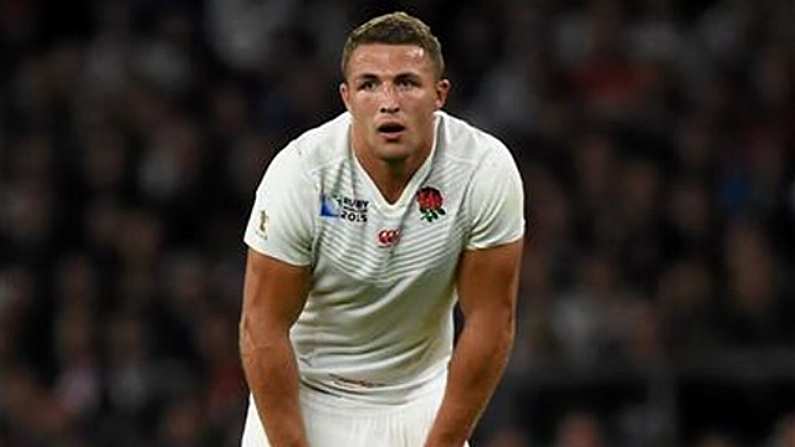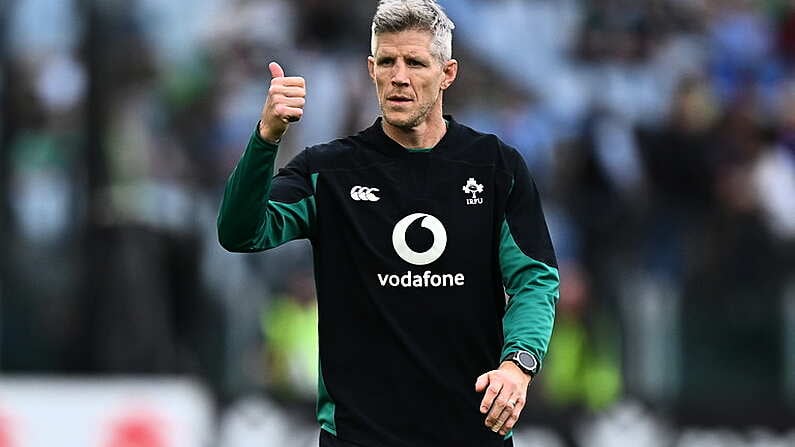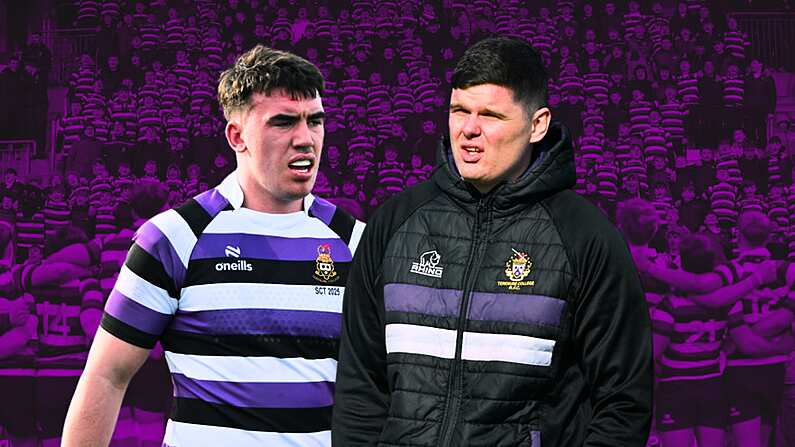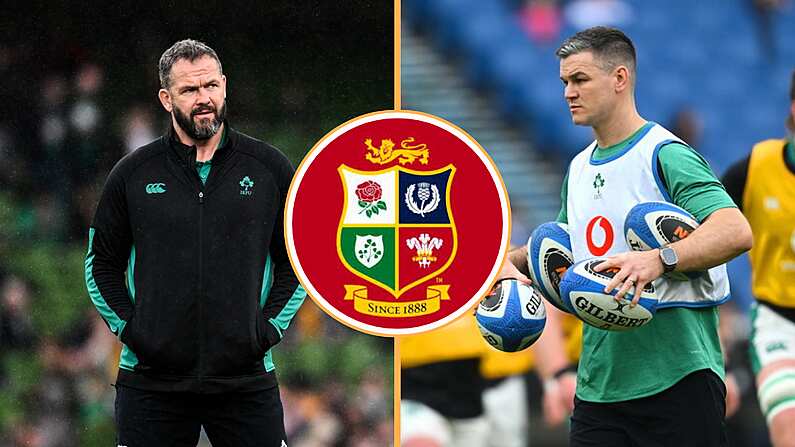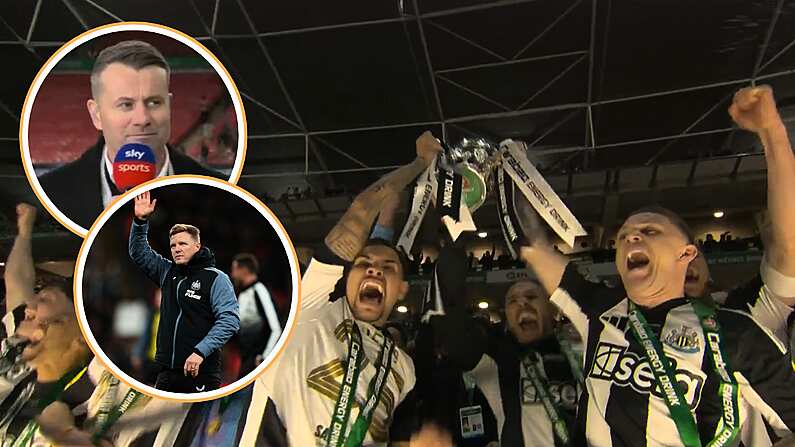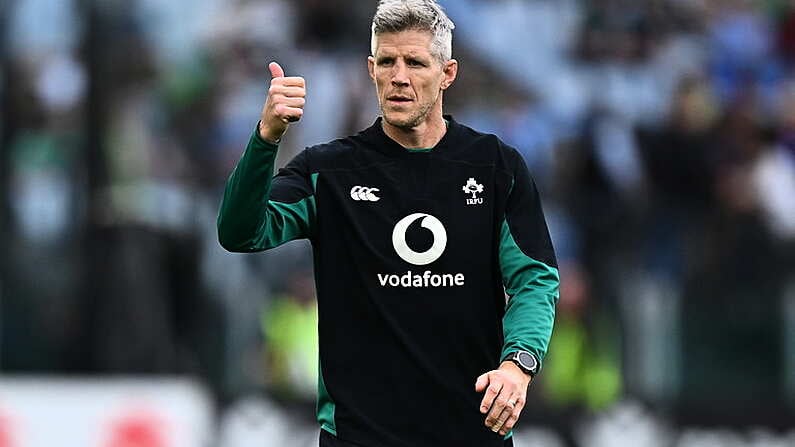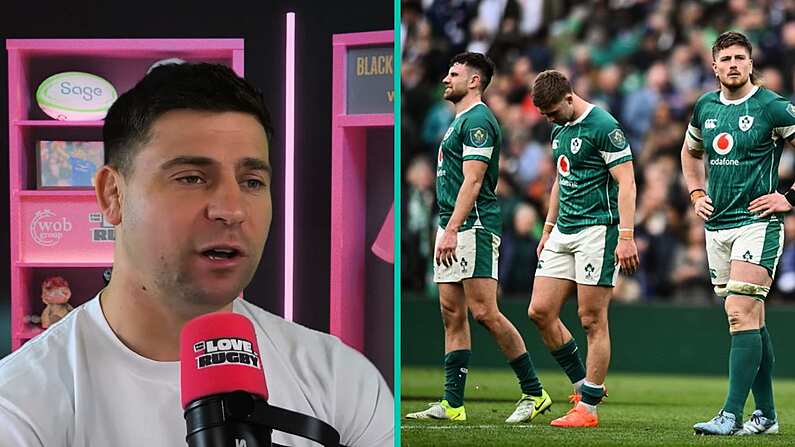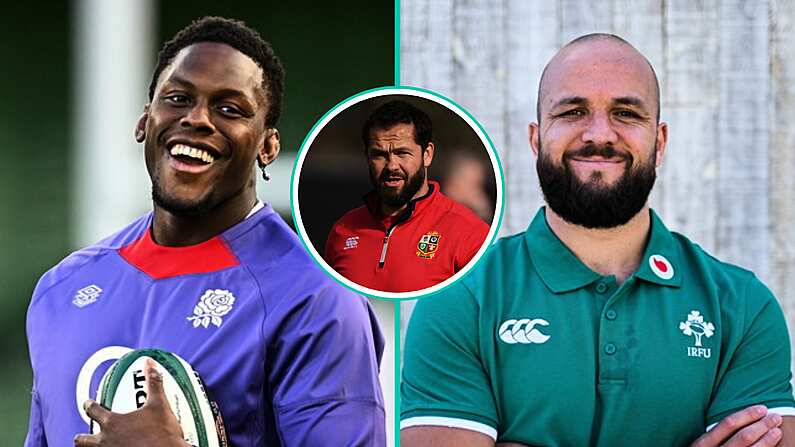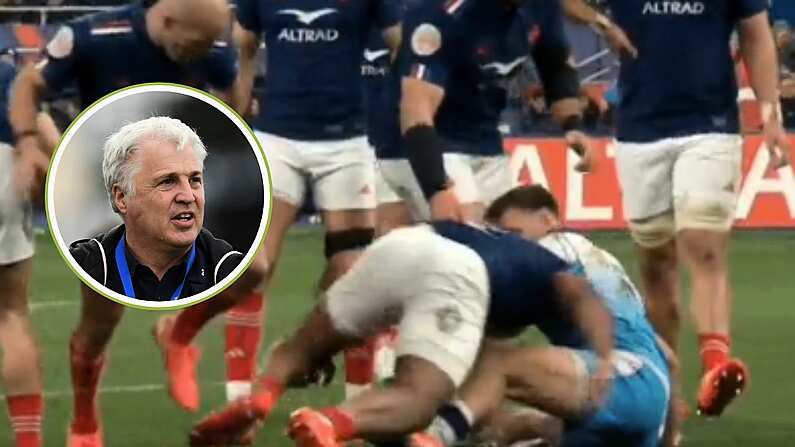The ex-chairman of Rugby League Ireland is fed up of the obsession with the Rugby 'Union' World Cup, doesn't rate Ireland's chances, and, although an Englishman, is pleased England were knocked out of the competition.
At the weekend, the Wallabies danced past England on their way to a scintillating 20-point win, a result which shunted the hosts out of the tournament and announced them as one of the favourites for the competition.
However, in Australia, the victory was dwarfed in importance by the National Rugby League Grand Final between North Queensland Cowboys and the Brisbane Broncos.
In a spectacular game in the Telstra Dome in Sydney, the Cowboys pipped the Broncos thanks to a last minute try, a move which featured a stunning offload from Michael Morgan. The try levelled the match at 16-16, and the Cowboys' Jonathan Thurston won the game with a golden point drop goal in extra time.
GRAND FINAL HIGHLIGHTS! What a Game!
Posted by NRL Live Commentary on Sunday, 4 October 2015
Dave Southern, the former chairman of Rugby League Ireland, is irked by the fact that the game didn't receive enough coverage in this part of the world, and is eager to contrast 'the free-flowing, non-stop entertainment' on offer in the NRL Grand Final with the 'endless kicking and rucks and mauls' in the rugby union World Cup.
Born in Widnes, a rugby league stronghold located between Liverpool and Manchester, Dave lived in South Africa during the 1990s, where he saw the rugby union authorities attempts to stamp out rugby league first hand.
In 1999, he moved to Ireland, becoming the inaugural chairman of Rugby League Ireland when it was founded in 2000.
As an Englishman, he was happy to see England knocked out of the World Cup.
I wouldn't be supporting it on principle. I was pleased when England were knocked out by Australia. That's nailing my colours to the mast as someone who was born in England. And it's down to the hypocrisy and it's down to the hard time that they've given my community in times gone by. So, it's a plague on them.
There is a definite note of anti-League sentiment amid the barracking of Sam Burgess since England's ignominious exit last weekend. While Southern allows that Burgess may have been thrown into the elite level of rugby union a tad soon (a mistake union coaches make habitually), he believes the scapegoating of the player is instructive.
Then they're trying to lay the blame for England Rugby Union losing against Wales on Sam Burgess. They're saying he was out of his depth. Well, England were in the lead when Burgess went off and then it seemed that the house of cards fell down thereafter.
And now they've lost against Australia and Burgess wasn't on the pitch until the last 15 minutes and made very little impact.
But, it's like scapegoat antics. People are looking for someone to blame. And it's not the coaching staff and it's not the lack of player quality. Let's point the finger at the bogeyman. It's him. It's the rugby league influence.
Why are they not saying that about Sonny Bill Williams? A lot of New Zealand players have played rugby league at a young age. Same in Australia - Israel Folau, Lote Tuqiri...
You've got lots of examples of where rugby league comes into rugby union. And lots of them make it but if they don't, then they're just looking for something to pin on them. Scapegoats.
Furthermore, Southern believes Ireland could be in for a fall against the French this weekend. On the evidence of last Sunday's unimpressive win, he believes Ireland's standing as one of the favourites is thoroughly undeserved.
I don't think Ireland have got a very good chance against France, because they're pretty poor on the evidence of the game against Italy. It were pretty poor. They were saying the opposition dragged them down and all that... But I think you've got to rise above that. I think that excuse is a little bit weak.
I wouldn't rate Ireland's chances, as I didn't rate England's chances. And hopefully, there's not too many tears shed if Ireland don't come out (on top) against France. Because they are getting acclaim as if they're world beaters but I've not seen them put the performance to say they're going to do very well in this competition.
Many have seen the debate between Sky rugby league pundit Mike 'Stevo' Stevenson and union's Stuart Barnes, ostensibly about players moving from the former code to the latter, but which quickly turned into which game was better.
And, needless to say, Southern does not see much in Rugby Union as a spectacle. Unless the teams are playing open running rugby, he sees little to excite him in the sport.
It frustrates me when I watch it. I can enjoy watching the All Blacks if they're running the ball and if they're throwing the ball around and they're doing what they should do
But endless kicking back and forth, set scrummages, and rucks and mauls and phases, my God, phases... What is a phase? It's just the ball trundling forward not very spectacularly.
I would look at what we saw in the NRL Grand Final. That is entertainment. That is what it's about. It's non-stop, it's big hits, it's aggressive, it's clean, you hardly knew the referee was on the pitch because during the whole game there was only four or five penalties. It had drama. That's what I call entertainment. I can't watch a ruck, or a maul, or a lineout and say that's brilliant. Look how tall he is!
The division has its roots in the old amateur/professional dispute that blighted a number of English sports in the late nineteenth century. Southern sketches out the history of the schism that saw League and Union separate in the 1890s.
Rugby League was born out of a great split between working class communities of the North and the professional classes of the South.
Rugby was played on a Saturday. Working class people in the north would work six days a week and rest on the Sunday. They would have to take time off work without getting paid to attend the game and play. And guys were saying, 'I can't play the game this weekend, I've got to work'.
So, when the manager would come this weekend and say 'we've got a big game this weekend', the player would would say 'I can't play. I've got to work.' The manager would say, 'we need you. How much d'you get paid for your day?' 'Two shillings'. 'Fine, take half a day, we'll pay you one shilling.'
They were called 'broken time payments' and it was fine because they weren't losing out. But when the southern (England) cousins got wind of this, they didn't like it. We're talking a different class. They would come from the background of solicitors, doctors, barristers, civil servants so they didn't need to take time off. That was when the great schism arrived. A message came from Twickenham saying that if you paid broken time payments you will be making them professional and we'll ban you.
The most famous Irish rugby league player is Brian Carney, who starred for years for Gateshead, Hull and later Wigan, before transferring back to union in time to make the 2007 World Cup squad.
As this writer has commented before, if one were to invade the Dail gallery and toss a load of water balloons onto the suits below, the chances of an ex-GAA player getting wet would be very high. However, at one stage in it's history, Leinster House did boast a rugby league player. Fine Gael TD and former Sligo Gaelic footballer Ted Nealon (who died last year) played league for Cadishead Rhinos while working as a journalist in Manchester in the 1950s.
Given Ireland's current fixation with rugby union, it's intriguing, but not wholly surprising, that the Irish community in England were embraced much more warmly by the rugby league fraternity than their by exclusive union rivals. The sheer number of rugby league clubs with Irish inspired names is testament to that.
There was a pub, up until in the late 1950s, in West Bank in Widnes and they would speak Gaelic. There was such an Irish influence on the Widnes community. Many's the time as a boy growing up, you'd see the hearse on the street with the tricolour draped over the coffin. Still happens, but to a lesser degree now.
They (the Irish community) would have their work and now they're looking for recreation. There was no Gaelic football so they would look for something else that was physical, and they turned to rugby, a la rugby union.
They weren't always given a warm welcome. It's almost like this grammar school approach of 'where you from?' or 'what school did you go to?'. So, when they (Irish people) went along and they said I'd like to play this game.
- 'Where do you come from?'
- 'Ireland'
Not the archetypal white Anglo-Saxon protestant, so, it was a case of, 'actually, we're full'.
So, then they said, 'Rugby League, what's this all about?' They were welcomed with open arms.
I did a little tot up at one stage. Even where I come from in Widnes, you've 'Widnes St. Maries', 'Widnes St. Deeds'. Then, you've got 'Wigan St. Patrick's', you've got 'Dewsbury Celtic', you've got Oldham St. Anne's'. You've got a massive structure of rugby league clubs built on Irish labour and Irish input.
You've just got to look back at some of the names in rugby league programmes, like Myler, O'Loughlin, Farrell even... There's lots of them going around because there is a very strong connection between
Southern sees similarities between the foundation of rugby league and the GAA. He regards both as being born out of a rebellion against the existing establishment.
In slanging matches between the two codes, union supporters often point to the more global nature of their game. Southern is irked by those who refer to rugby union's supposed greater popularity, demolishing the idea that this means the game is somehow superior. People follow rugby union because, for various reasons, the game has travelled further, not because people in these countries enjoy watching 'rucking and mauling'.
The reason 'Rugby League' hasn't stretched its wings out over the, let's use the word 'Empire' for this example, is that we didn't have civil servants running the empire in India and the South Americas.
These people who were running the empire played cricket in the summer and rugger (union) in the winter... So that's why they're playing in Argentina and other places where rugby league wouldn't have a foothold.
Let's get this 'popularity' thing out of the way. It's not because everyone loves lineouts and watching people rucking and mauling. It's because that's (union) what they knew.
Those in rugby league have long been great innovators, Southern contends. It is difficult to argue with this. While the unions in the northern hemisphere recoiled in horror at the idea of a Rugby World Cup (the IRFU and the WRU both opposed it's development even until the 1980s), the League boys had their World Cup up and going in the 1950s.
The authorities and the establishment are calling the current tournament that they're involved in 'the Rugby World Cup'. It's as if they own the name 'rugby'. But the first Rugby World Cup was in 1954 in France and the final was played between Great Britain and French rugby league.
That's indicative of what rugby league people are facing at the moment. They're trying to airbrush us out of history. It doesn't sit well with rugby league people.

